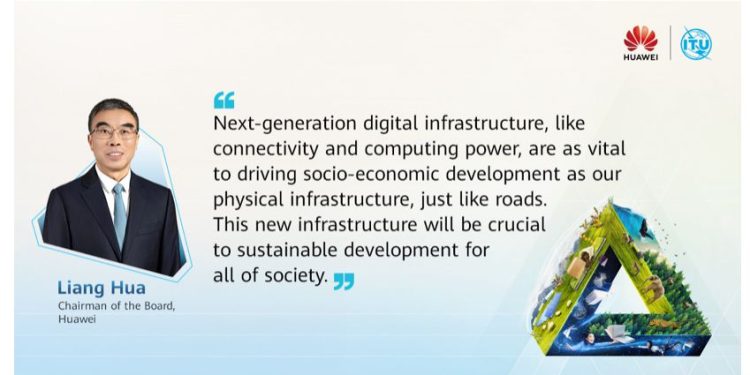In today’s rapidly evolving world, infrastructure plays a critical role in shaping the future of society.
While traditional infrastructure, including roads, bridges and power grids, has long been recognized as the backbone of economic growth and development, digital infrastructure is evolving to form the foundation of a sustainable and equitable society.
Digital infrastructure, particularly connectivity and computing power, has emerged as a crucial driver of socio-economic progress, as traditional infrastructure is not meeting the demands of societies in a world filled with technological advancements. With the world grappling with the challenges of ensuring inclusive development, next-generation digital infrastructure is becoming as essential as its physical counterpart.
The International Telecommunication Union (ITU) indicates that, by the end of September 2023, nearly 2.6 billion people, about 33% of the world’s population, had never used the Internet. Most of these people, the ITU indicated, are from developing countries or underserved rural communities.
Speaking at the 3rd Huawei Sustainability Forum, Mr. Liang Hua, Chairman of the Board of Huawei, advocated for universal access as he asserted that stable connectivity is not only a fundamental right for every individual but also a cornerstone of the digital economy. He said “Everyone should have access to stable connectivity. We see connectivity not just as a basic right for every person, but also as a cornerstone of the digital economy”.
He also underscored the centrality of connectivity in fostering a thriving society. He emphasized its role in simplifying daily routines, strengthening economies, and promoting environmental sustainability. He indicated that “connectivity is playing an important role in every aspect of our lives. It makes our lives easier, our economies stronger, and our environment greener.”
Moreover, Mr. Liang Hua stressed the importance of a potent computing infrastructure to accelerate digital and intelligent transformation across industries. “We need to build a stronger computing infrastructure to speed up digital and intelligent transformation across industries and integrate the development of the digital and real economies”, he said.
As the world moves towards the future, investing in next-generation infrastructure is no longer a choice, but a necessity. Prioritizing the development of a reinforced network infrastructure and strengthened computing capabilities will lay the foundation for a more sustainable, equitable, and prosperous future for all.





